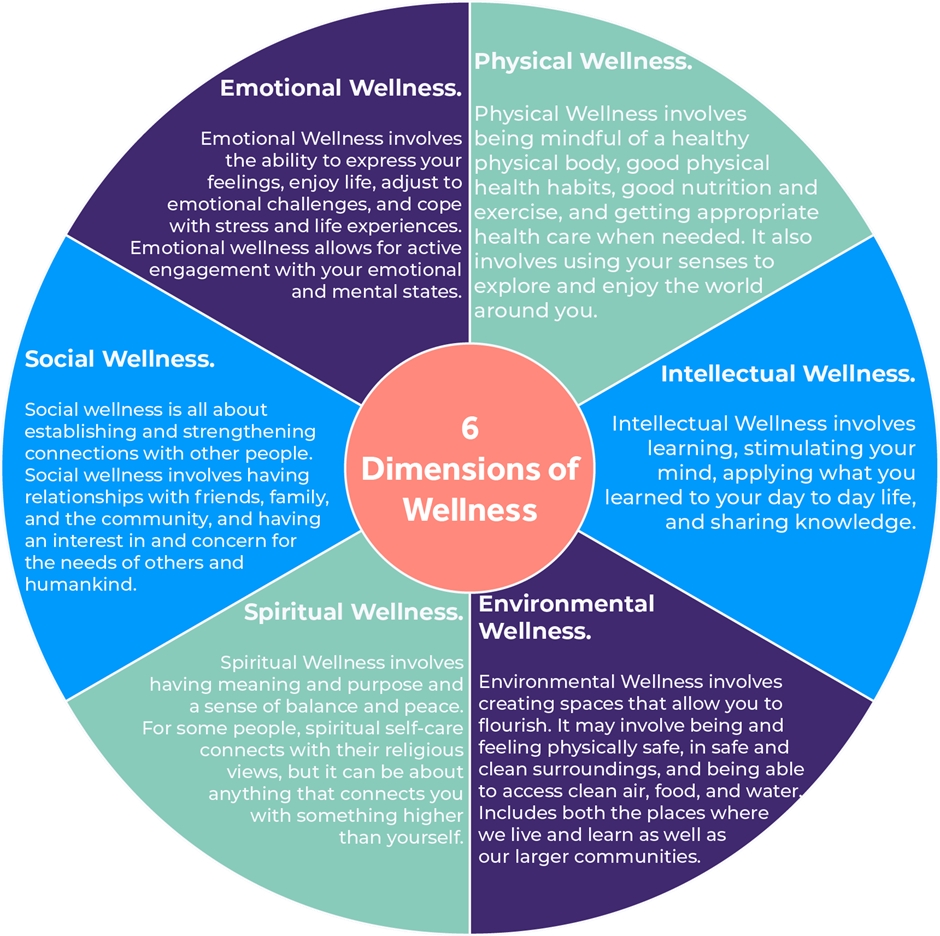We can all thrive: wellness in your everyday life
Counsellor Christine Morrison at Shout shares her advice on how we can all thrive in tricky times.
Recently I was sitting around the dinner table with friends. A few months earlier, my partner broke his collarbone in a snowboarding accident. Between bites of lasagne, he told the story of his fall and dramatic rescue. Everyone listened on the edge of their seats. It seemed the more intense the story got, the more impressed the group was. He even pulled up his Instagram and passed around a photo of his bone jutting out, flashing a smile and a thumbs-up. The group then broke into a choir of everyone’s own injury stories and scar reveals.
Physical health challenges and our approaches to looking after our physical wellbeing are normalised in our society. We brag about the long run we went on, take fitness classes with friends, and add pictures of our healthy salad to our social media stories.
When it comes to mental health, we approach it as binary: either we’re crazy/ broken and we need to be fixed, or we’re not. This is problematic. It perpetuates shame and stigma and prevents us from talking openly about our mental wellbeing. It teaches us that mental ill-health is a disorder that needs to be fixed rather than something we all experience and can all maintain, work at and improve.
What if we approached our mental health the way we do our physical health? What if we had open conversations about our mental health scars and breaks? Even if our mental health is sound, we can still learn to thrive.
In honour of World Mental Health Day, I challenge us all, no matter how mentally healthy we are right now, to nurture our mental wellness.
Try these 3 things to thrive:
Construct a personalised wellness plan
An important step to manage your wellbeing is to assess where you fall on six different dimensions of wellness. Each dimension intersects and plays an important role in your overall wellbeing. We are often duped into thinking we’re doing a lot to maintain our wellness. We may find that we’re focused too narrowly on a couple of the six dimensions and neglecting the others. Each one intersects and is crucial. Consider each dimension using the wheel below. Do you actively attend to each of these six dimensions? If not, how could you incorporate more of it into your daily life?

Improve self-awareness
Research suggests that when we have a better understanding of ourselves, many dynamics of our life improve. We become more confident and more creative. Our relationships are stronger and we tend to make sounder decisions.
Self-awareness includes two major components: internal self-awareness and external self-awareness. Internal self-awareness is our ability to see our values, beliefs, strengths, emotions, and how we impact others. External self-awareness is how clearly we understand the way others view us. Cultivating both internal and external self-awareness are important to our wellness. You may notice you have more of one than the other.
Everyone can improve their self-awareness. To get started, either journal or have a conversation with a friend or family member using the questions below:
- What brings you joy?
- What is your deepest fear?
- What traits do you like/dislike most in yourself?
- What traits do you like/dislike most in others?
- Who (famous or someone from your everyday life) do you most admire?
- What do you consider the most overrated virtue?
- When and where were you happiest?
- Which talent would you most like to have?
- What do you consider your greatest achievement?
- What do you most value in your friends?
Share how you're feeling, especially when you're not feeling your best, and ask others how they are.
Most of us ask and respond to the question, “how are you?” on a daily basis. Our knee-jerk reaction is to say, “good” or “fine” or “okay.” We’re asking but never getting or giving much real information about how we really are. To begin open and honest conversations about mental wellbeing, ask open-ended questions that can't be answered with one or two words. Instead of asking your friend, “did you have a good weekend?”, consider a question that requires a more elaborate answer like, “tell me about your weekend?”
On the flip-side, consider giving more elaborate and honest answers when others ask you how you are. People want to connect, you won’t burden them by being honest and open. Ask yourself if you have people in your life with whom you can have open and honest conversations about your wellbeing. If you don’t have someone who you can lean on for support and growth, consider connecting with a professional or using a connection resource.
There are free support services like Shout 85258 who you can text anytime 24/7. Most schools have a counselling centre or services. Moreover, many people find connection through clubs and sports as well as online support communities like Clic or the app TalkLife.
Search
Location inspiration
If you're not sure where you're heading yet, take a look around our properties in all corners of the UK.

Great Newton House, Liverpool

Shoreditch, London